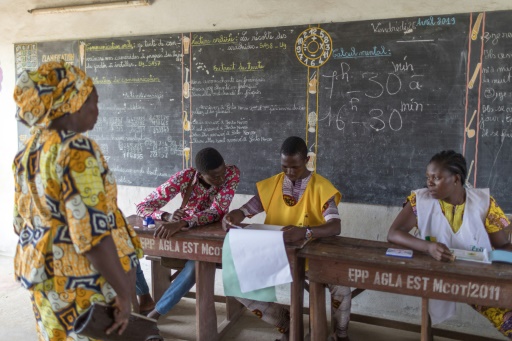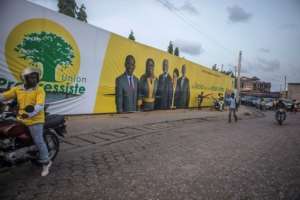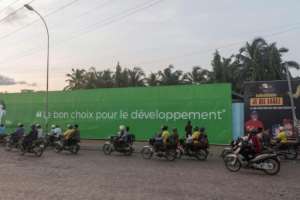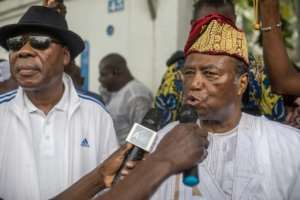
[ad_1]
Beninese voters on Sunday boycotted a large number of parliamentary polls with no choice of opposition candidates, as rights groups warned against repression of fundamental freedoms.
While national radio stations pleaded for voters to "fulfill their duty as citizens" and elect 83 new members of parliament – choosing between two allied parties to President Patrice Talon – the Internet is cut off.
The small country of West Africa has long been considered a model of democracy, but the main opposition parties of the country have been barred from nominating candidates because of new rules. strict eligibility.
Instead, they asked their supporters to demonstrate by boycotting the elections.
Many of the five million registered voters seemed to stay away, with booths in the economic capital of Cotonou, empty streets and shops closed all day.
Internet stops
In the 10 polling stations visited by AFP in the strong opposition zone of Seme-Podji, no more than 35 voters voted on more than 400 registered voters. The situation seemed similar in other parts of Benin visited by AFP reporters.
"We have never seen such a thing," said an election commission official. "People did not go out."

In the run-up to the vote, demonstrations were dispersed by force. In the beginning, internet access was heavily restricted with blocks on major social media and messaging apps.
Amnesty International has described the closure of the Internet as "a flagrant violation of the right to freedom of expression".
Later in the day, Internet access was completely closed.
"It silences human rights defenders, journalists and bloggers who watch the parliamentary elections disputed without opposition candidates," Amnesty said in a statement.
"To go too far"
Even supporters of the president did not vote.
"I'm not a fierce opponent, I actually support President Talon," said Wilfrid Pokini, a trader from the capital Porto Novo. "But I do not support this election – an unopposed election, what is it? It goes too far."
People say they are "stunned" and "shocked" by the situation, but the general ban on demonstrations before the vote has kept people away from the streets.

"The wave of arbitrary arrests of political activists and journalists and the crackdown on peaceful protests has reached an alarming level," said Amnesty International researcher François Patuel.
Prior to 1991, Benin had experienced decades of authoritarian rule. The transition to democracy has led to flourishing political competition: five years ago, voters could choose from 20 parties for the 83 seats in Parliament.
But this year the legislators of the ruling party have adopted a new electoral code.
Tensions
Talon, elected in 2016, presents himself as a reformer and a modernist. He defended the electoral code, claiming that he would bring together the many political parties – more than 250 parties in a country of about 12 million – into simpler blocks.
But critics say the rules were too harsh and bureaucratic. Only the two allied parties in Talon – the Republicans and the Progressive Union – fulfilled the new conditions, thus preventing the opposition from participating.

Several international and national observers have abandoned their missions to monitor the polls. Some warn against the risk of unrest.
"The ban on peaceful demonstrations and the detention of those who denounce the exclusion of opposition parties from the legislative elections will only fuel the political turmoil," added Patuel.
The president is however apparently not worried. There seems to be little doubt that the new parliament will support the presidency in its entirety.
"The resentment will pbad," said spokesman President Wilfried Houngbedji. "Monday, life will resume its normal course."
Source link